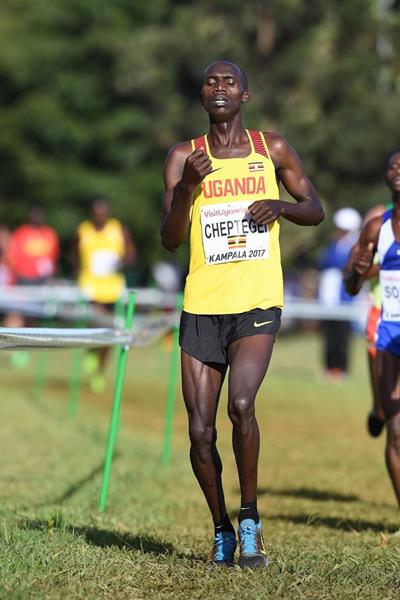What Happens When The Wheels Fall Off?
Uganda’s Joshua Cheptegei was looking to bring home his country’s first senior men’s title at the World Cross-Country Championships, but his body had other plans.
Uganda’s Joshua Cheptegei was looking to bring home his country’s first senior men’s title at the World Cross-Country Championships, but his body had other plans. – Dr Ross Tucker

This past weekend, the World Cross-Country Championships were held in Kampala, Uganda. East Africa is, as you probably know, the epicentre of world distance running, and Uganda have produced running champions before (notably, the 2012 Olympic Marathon winner), but never before had they won this title – arguably the most difficult to win in global running.
Joshua Cheptegei dreamed of changing that. A few days before the race, the Ugandan tweeted that it was “do or die time”, and on that Sunday afternoon, in temperatures approaching 28°C, he went as close to fulfilling his prophecy as you can ever hope to see in sport.
If you haven’t seen video of the race, I highly recommend watching it. Having gone to the front at around 4km, he destroyed the race behind him, quickly opening up big gaps. His lead grew, kilometre by kilometre, inspired by vociferous local support, so that he reached the final two kilometre lap (it’s a 10km race) with an advantage of 12 seconds over his closest pursuer, Geoffrey Kamworor.
Then the wheels started to come off. Slowly at first, nothing obvious, but a little unsteadiness jumping over the logs, a sluggish pull up one of the steep man-made hills on the course.
The gap was slowly coming down, and was about eight seconds with one kilometre to run. Here was a 20-year old, in front of his home crowd, three minutes away from sporting immortality. A more motivated athlete cannot exist. What happened next proves that motivation alone is not enough, and the mind, however willing, is still subject to the realities of ‘matter’.
Cheptegei’s stride was looking very heavy, and all the while, Kamwroror was closing. With 800m to go, it was clear Cheptegei would be caught.
The catch happened at around 700m to go, and then resistance crumbled. Within a minute, Cheptegei was not merely shuffling, he was staggering. His legs looked lame, as though someone had shot a tranquiliser into his muscles. His head was pulled back, his co-ordination gone, his arms and legs out of sync. He resembled an alcoholic staggering home from the pub while fighting off a seizure.
Dramatic scenes, and not the sort one usually sees in elite athletes. However, they do happen, and the question is why? Physiologically, what causes an elite athlete to go from running 2:45/km to running 8:00/km, struggling to run in a straight line within three minutes?
At the heart of the matter are the concepts of “regulation” and “protection”. The brain is in charge, and is regulating your entire system to prevent potentially harmful changes during exercise. Those harmful changes might include running out of fuel, or failing to get enough oxygen to the brain. They include the accumulation of metabolites from the various metabolic processes that provide energy to the cells. And they include the potentially harmful rise in body temperature.
About 20 years ago, Danish researchers observed that when people exercised in the heat, their body temperatures would increase progressively, but they’d keep exercising, albeit uncomfortably, until they reached a core temperature of about 40°C. Then, apparently without exception, they’d hit the point of absolute exhaustion.
Tellingly, they’d lose co-ordination and muscle control, be dizzy, disoriented – symptoms that are remarkably similar to those shown by Cheptegei in Uganda (the same symptoms exist when blood sugar levels plummet, so telling these apart is tricky).
The theory was that a critical body temperature or blood sugar level existed, beyond which the motor cortex of the brain ‘failed’ to keep activating muscle properly. Normally, in a regulated system, a key reason we pace ourselves is to avoid reaching this point prematurely. This is done by regulating how much muscle we can activate, which determines how fast (or slow) we run. We slow down in anticipation of reaching these various potential limitations.
Cheptegei proves that the system is not fool-proof, and is more complex than just physiology. Inspired by home support, carried by emotion and adrenaline, he has pushed through that regulation, perhaps to the point where his body temperature has risen to reach critical levels. Unfortunately for him, this happened about one kilometre before the finish line.
The result was that his brain took decisive action. Regulation having failed, protection kicks in, and all the motivation in the world wasn’t enough to keep running. It was the ultimate protective act, forcing him to slow down to prevent real harm. He pushed to the very limit of his capacity, and showed just how fragile the limits of performance can be.

